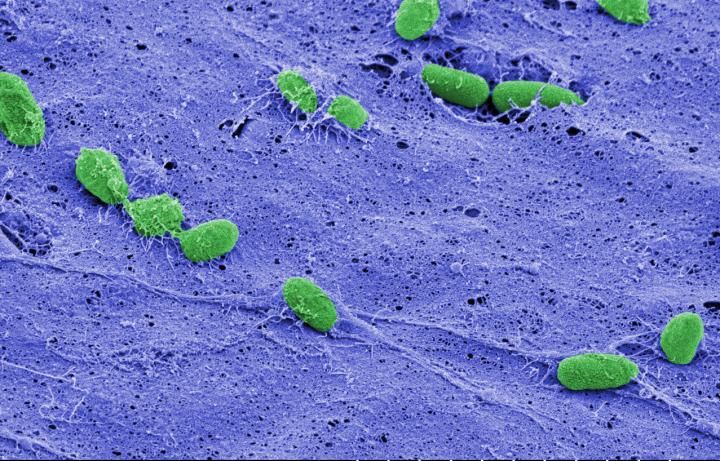WSU researchers find way to make cancer cells more mortal
Washington State University researchers have discovered a way to help cancer cells age and die, creating a promising avenue for slowing and even stopping the growth of tumors.
"Hopefully, we can make cancer cells die like normal cells," says Weihang Chai, an assistant professor in the WSU School of Molecular Biosciences and WWAMI medical education program in Spokane. "Basically, you make the cancer cell go from immortal to mortal."
Normal cells lose a little bit of their DNA every time they reproduce as the molecule's strands lose part of their protective tips, called telomeres. Eventually, the telomeres become too short, signaling to the cell to stop replicating and growing.
But cancer cells have a mechanism to keep their DNA strands from shortening, giving them a near eternal life. This is because the enzyme telomerase extends one strand of the cancer cell's DNA while other proteins help extend the second strand.
Chai and her colleagues, writing in the current issue of The EMBO Journal, say they have found a regulatory protein that controls the production of that second strand. They have also found a protein required to synthesize it.
If that second strand of DNA cannot be lengthened, says Chai, it behaves like a normal cell and dies a normal death. She says her team will now focus on developing a strategy to block the regulatory protein's function.
Other news from the department science

Get the life science industry in your inbox
By submitting this form you agree that LUMITOS AG will send you the newsletter(s) selected above by email. Your data will not be passed on to third parties. Your data will be stored and processed in accordance with our data protection regulations. LUMITOS may contact you by email for the purpose of advertising or market and opinion surveys. You can revoke your consent at any time without giving reasons to LUMITOS AG, Ernst-Augustin-Str. 2, 12489 Berlin, Germany or by e-mail at revoke@lumitos.com with effect for the future. In addition, each email contains a link to unsubscribe from the corresponding newsletter.





















































